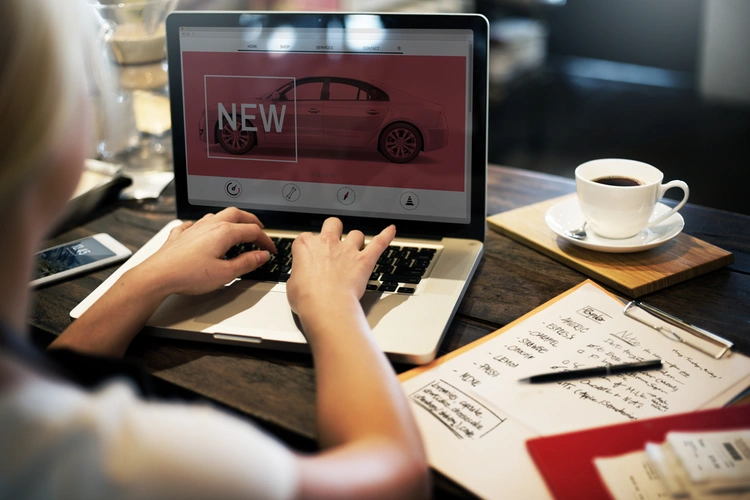The differences between car finance and buying outright
There are two main options when it comes to getting your own set of wheels: buying it outright or taking out car finance. Which one is better depends largely on your personal situation, but it’s important to understand the key differences to make an informed decision.
- when you buy a car outright, it becomes your property then and there. This may sound obvious, but it isn’t the case with car finance. With hire purchase (HP), personal contract purchase (PCP) and car leasing, you don’t own the car when you enter into the agreement
- with some types of car finance, you can simply hand back the car and upgrade to a new one when the agreement term is over. If you buy a car outright, then it’s your responsibility to sell it if you don’t want it anymore
- buying a car upfront involves making a one-off payment, but with car finance you’ll likely have to pay a deposit followed by monthly repayments. In the case of HP, your monthly payments contribute to your eventual purchase of the car. With car leasing, though, the monthly payments simply allow you to use the car but don’t contribute to the purchase of it
- buying outright is cheaper than finance. This is because interest and fees are added to finance options, making the overall cost of the car higher
- using a finance option to buy a car can help your credit score – if you are a responsible borrower. By always making your monthly repayments on time and in full, you can prove your ability to repay credit
Car finance vs buying outright: the pros
While the ‘right’ option depends on your situation, it’s good to be aware of the pros and cons of both. This way you can feel confident that you’re making the decision that’s most suitable for you.
Here’s a quick breakdown of some of the benefits of car finance vs buying outright.
|
Car Finance |
Buying outright |
|
Your choice of car isn’t limited by the amount of cash you have access to upfront |
You own the car as soon as you drive it out of the dealership |
|
You can spread the cost over time |
You pay a bigger sum to begin with, but it works out cheaper in the long term |
|
The interest and the monthly payment amount are fixed for the duration of the agreement – making budgeting easier |
You don’t have to worry about additional fees or charges if you use savings |
|
It can help improve your credit score, as long as you make the monthly repayments on time and in full |
You don’t have to factor recurring payments into your budget |
|
Not having to use all of your cash to buy the car allows you to keep your ‘nest egg’ |
No mileage, usage or modification restrictions |
|
With some finance options (like PCP), you don’t have the hassle of selling the car on at the end of the agreement if you no longer want it |
You can part-exchange or sell the car whenever you want, and you’ll keep the full amount |
Car finance vs buying outright: the cons
There are two sides to every coin, and so it is with the options for buying a car. Here’s a list of some of the cons.
|
Car Finance |
Buying outright |
|
Interest and fees mean you end up paying more for the car in the long run |
This can leave you without savings, which you may need in an emergency |
|
There may be additional fees if the car is damaged, or if you want to buy it at the end of the agreement |
The value of cars depreciates, so your car will be worth less than you paid for it very quickly |
|
You don’t necessarily own the car at the end of your finance term, depending on the type of finance you’ve chosen |
Your choice of cars can be limited by the amount of cash you have available upfront |
|
It can be difficult to get out of finance agreements |
Limits how often you can upgrade your car |
|
There may be mileage, usage and modification restrictions |
You have the responsibility of selling or getting rid of it if you don’t want it anymore |
|
If you fail to make your repayments, your credit score can be negatively affected |
Uses up savings that could be used on other investment or savings products |
Are there any alternatives?
While car finance or buying outright are some of the most popular options for getting a car, they aren’t the only ones available.
Taking out a personal loan can be a good method of buying a car. It’s a bit like having the best of both car finance and buying outright, as you get the benefit of owning the vehicle immediately while being able to spread the cost.
However, unlike with most car finance options, the interest rates for personal loans may not be fixed for the whole repayment period. Your monthly repayments may also be higher with personal loans and you may need a good credit score to be approved.
You can also buy a car with a credit card. This option allows you to shop around for the best interest rate, as well as offering further flexibility on the repayment period. Purchases made with credit cards also benefit from extra protection.
However, some car dealerships may charge a fee for using a credit card, and some may not accept them at all. It’s also essential that you ensure you can make the monthly repayments, otherwise your credit score will be negatively affected.
Another option is remortgaging your home as a means of borrowing the money to buy a car. Similar to taking out a personal loan, it means that you’ll own the car straight away. You also won’t be at risk of any additional fees as you can be with some types of car finance. However, remortgaging can take time (as you’ll want to find the best deal) and you may face charges for making changes to your mortgage.
Things to consider before deciding
There isn’t necessarily a ‘good’ or ‘bad’ option when it comes to buying a car, there’s only what’s right for you. That’s why it’s really important to carefully consider the following before deciding how you’re going to buy your car:
- will your credit score allow you to get car finance? Some finance options (like HP) are more likely to approve you if you have a low credit score than others (like personal loans). Your credit score will also impact your interest rate, making some of the options that usually have lower monthly repayments, such as PCP, more expensive. If you’d like to learn more about credit scores, visit our guide to credit ratings
- can you commit to the monthly repayments? Missing a payment can negatively impact your credit score, so it’s essential that there’s room in your budget for them
- do you have a safety net of savings? Having a lump sum to spend on buying a car outright doesn’t necessarily mean you should use it all for that purpose. It’s wise to have some money put away for emergencies if you can
- do you need to own the car? If you’re just looking to have exclusive use of a car with lower monthly repayments, leasing a car or getting a PCP may be suitable for you. If you want to take ownership of the car eventually and you want to spread the cost of it, an HP agreement might be a suitable option. You won’t have to pay upfront, but you’ll be working towards owning it
Get Car Finance up to £100,000
- Check your eligibility without impacting your credit score
- No deposit needed
- Rates from 8.9%* APR
'Representative Example: Borrow £12,000 over 5 years with a £0 deposit. Representative 20.5% APR fixed rate. Monthly payment: £309.93. Option to purchase fee £10 payable. Total cost of credit: £6,605.80. Total amount repayable: £18,605.80.
We are a credit broker, not a lender. We partner with CarFinance 247 Limited, a credit broker (not a lender) who works with a wide panel of lenders.
Disclaimer: We make every effort to ensure content is correct when published. Information on this website doesn't constitute financial advice, and we aren't responsible for the content of any external sites.





